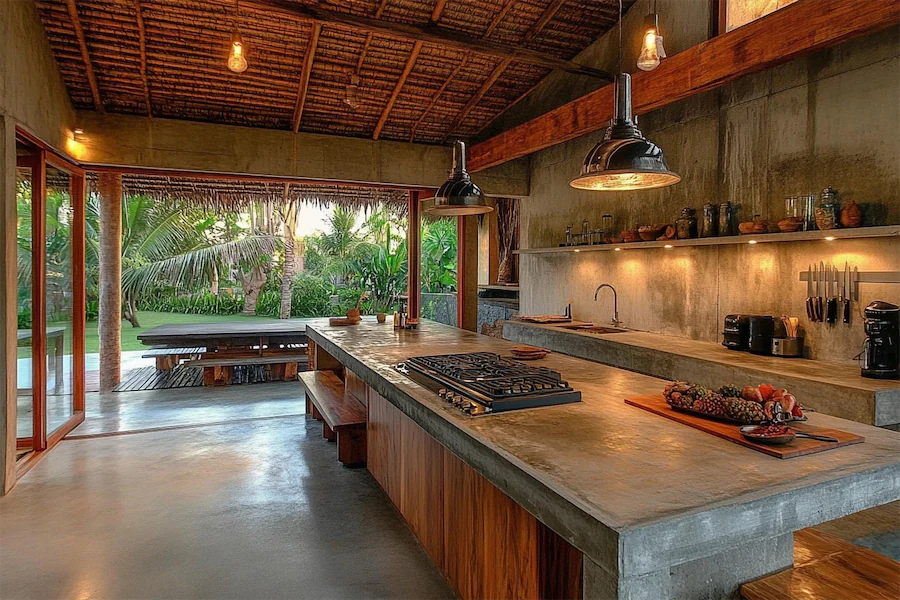A concrete kitchen embodies modern industrial aesthetics, offering a sleek and durable option for contemporary homes.
Key Features of Concrete Kitchens
- Industrial Appeal: Concrete surfaces provide a minimalist and industrial look, aligning with modern design trends.
- Customization: Concrete can be molded into various shapes and finishes, allowing for personalized designs that fit specific kitchen layouts and styles.
- Durability: When properly sealed, concrete surfaces are resistant to heat and scratches, making them suitable for high-traffic kitchen areas.
Applications of Concrete in Kitchens
- Countertops: Concrete countertops offer a robust and customizable surface for meal preparation, with options for different textures and embedded materials.
- Flooring: Concrete floors provide a seamless and durable option, suitable for both modern and industrial-style kitchens.
- Islands: A concrete kitchen island serves as a focal point, combining functionality with a contemporary aesthetic.
Considerations When Choosing Concrete for Your Kitchen
- Maintenance: Concrete surfaces require regular sealing to prevent staining and moisture absorption. Proper maintenance ensures longevity and preserves the appearance of the concrete.
- Weight: Concrete is a heavy material, necessitating sturdy cabinetry and professional installation to ensure structural integrity. Adequate support is crucial to prevent potential issues over time.
- Cost: While concrete offers a unique aesthetic, it can be a significant investment, with costs comparable to other high-end materials. Budgeting for both installation and maintenance is essential.
Conclusion
Incorporating concrete into your kitchen design introduces a modern and durable element that enhances both functionality and style. By considering factors such as maintenance, weight, and cost, you can create a concrete kitchen that serves as a contemporary centerpiece in your home.
